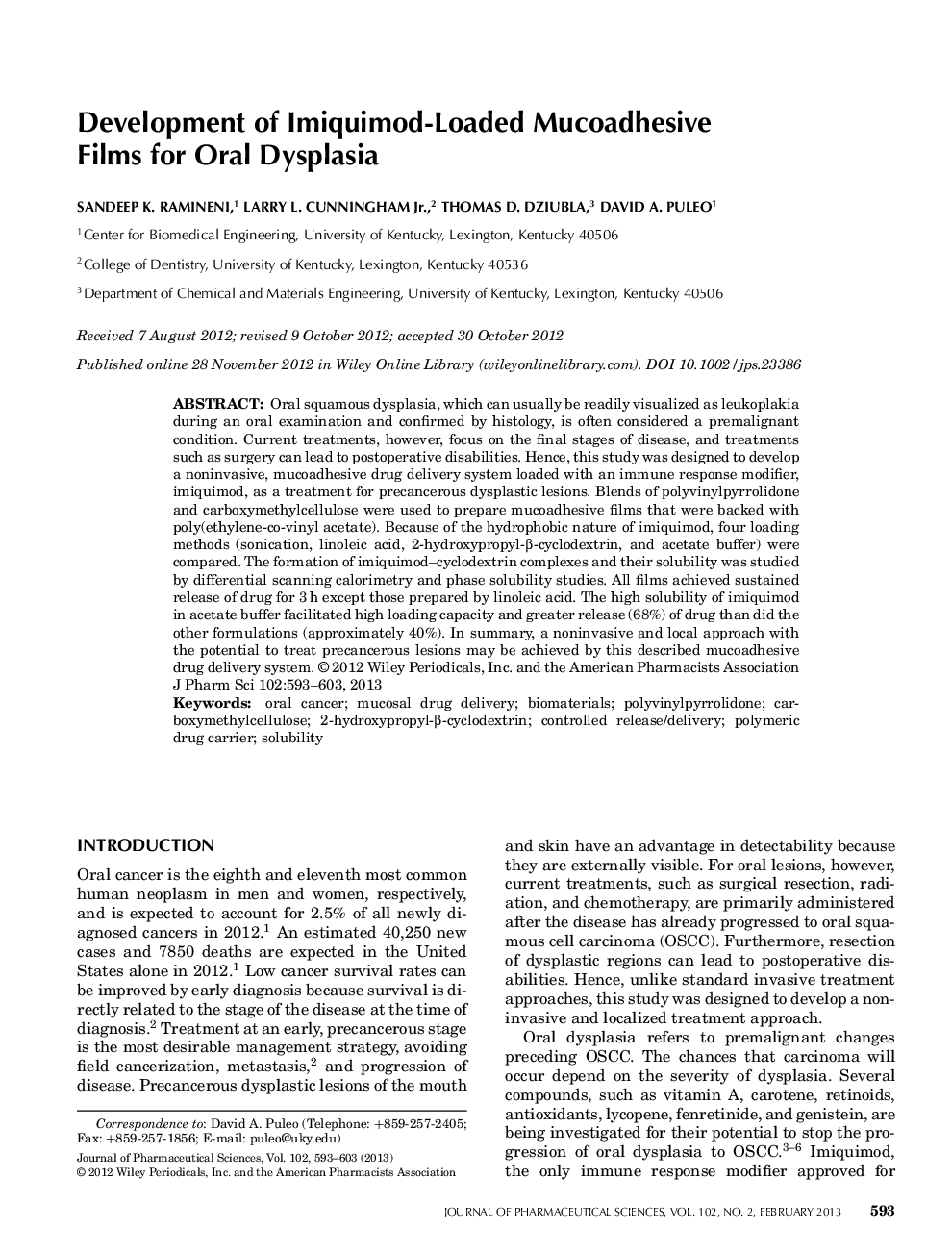| Article ID | Journal | Published Year | Pages | File Type |
|---|---|---|---|---|
| 2485031 | Journal of Pharmaceutical Sciences | 2013 | 11 Pages |
Abstract
Oral squamous dysplasia, which can usually be readily visualized as leukoplakia during an oral examination and confirmed by histology, is often considered a premalignant condition. Current treatments, however, focus on the final stages of disease, and treatments such as surgery can lead to postoperative disabilities. Hence, this study was designed to develop a noninvasive, mucoadhesive drug delivery system loaded with an immune response modifier, imiquimod, as a treatment for precancerous dysplastic lesions. Blends of polyvinylpyrrolidone and carboxymethylcellulose were used to prepare mucoadhesive films that were backed with poly(ethylene-co-vinyl acetate). Because of the hydrophobic nature of imiquimod, four loading methods (sonication, linoleic acid, 2-hydroxypropyl-β-cyclodextrin, and acetate buffer) were compared. The formation of imiquimod-cyclodextrin complexes and their solubility was studied by differential scanning calorimetry and phase solubility studies. All films achieved sustained release of drug for 3 h except those prepared by linoleic acid. The high solubility of imiquimod in acetate buffer facilitated high loading capacity and greater release (68%) of drug than did the other formulations (approximately 40%). In summary, a noninvasive and local approach with the potential to treat precancerous lesions may be achieved by this described mucoadhesive drug delivery system. © 2012 Wiley Periodicals, Inc. and the American Pharmacists Association J Pharm Sci 102:593-603, 2013
Keywords
Related Topics
Health Sciences
Pharmacology, Toxicology and Pharmaceutical Science
Drug Discovery
Authors
Sandeep K. Ramineni, Larry L. Jr., Thomas D. Dziubla, David A. Puleo,
